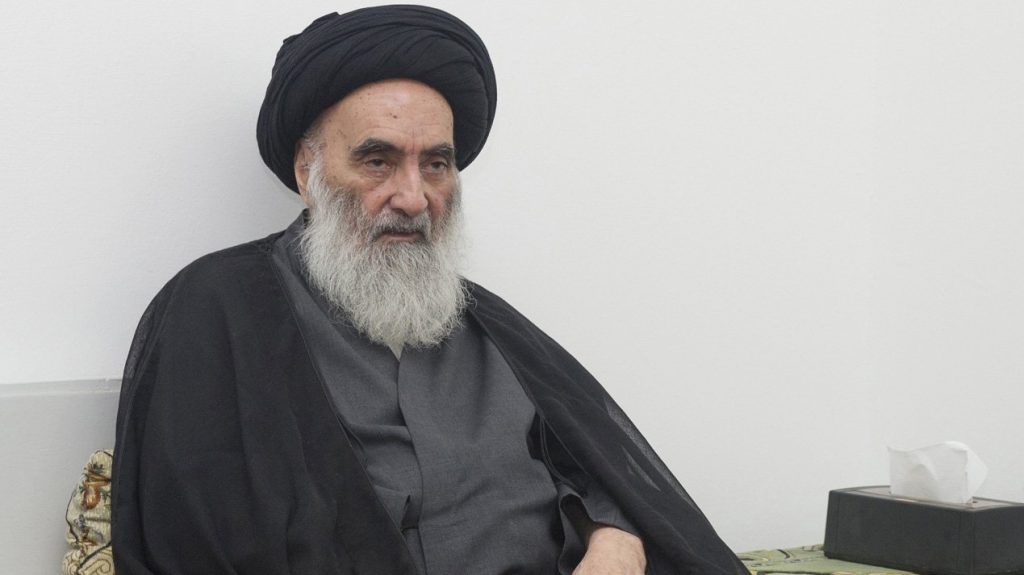Pope Francis will meet with Grand Ayatollah Ali al-Sistani during his trip to Iraq, a cardinal said on Thursday.
Cardinal Louis Raphaël Sako, the patriarch of the Chaldean Catholic Church, told AFP on Jan. 28 that the pope will have a private meeting with the top Shiite cleric in Iraq during the visit scheduled for March 5-8.
Ali al-Sistani is the Iranian-born leader of the Iraqi Shiite Muslim community. In 2014, he encouraged Iraqis to fight against the Islamic State, a Sunni terrorist group.
The Iraqi cardinal said he hoped that Pope Francis and the Shiite ayatollah would jointly sign the “Document on Human Fraternity for World Peace and Living Together” that the pope first signed in Abu Dhabi with Sunni leader Ahmed el-Tayeb, Grand Imam of al-Azhar, in February 2019.
Sako first expressed his desire to see the pope sign a fraternity document like the one signed in Abu Dhabi with a Shiite Muslim leader during a panel discussion on religious liberty in July 2019. The cardinal said then that he would like Pope Francis to visit Najaf, a city in central Iraq considered one of Shia Islam’s centers of spiritual and political power.
Ali al-Sistani played a role in the establishment of Iraq’s democratic government in 2004. More recently, he called for the resignation of the then Prime Minister Adel Abdul Mahdi after the government used violence against protesters in November 2019.
Speaking at an online meeting organized by the French bishops’ conference, Sako reportedly said: “The document on human brotherhood for world peace and common coexistence is a universal text and it will not be necessary to change it.”
“It is worth remembering that the third encyclical of Pope Francis, ‘Fratelli tutti,’ published last Oct. 4, draws its inspiration precisely from this common declaration. This is also the reason that in the logo of the apostolic visit we have put, in Chaldean, Arabic, English, and Kurdish, the verse of Matthew 23:8, ‘You are all brothers.’”
Sako’s comments were reported by the Italian news agency Askanews.
During his visit to Iraq, the pope is expected to travel to Baghdad, Ur, and the Christian communities in the Nineveh Plains in northern Iraq.
On the day after the Vatican released a statement indicating that plans for the papal trip to Iraq were moving forward, two suicide bombers detonated explosive vests in a crowded market in central Baghdad near Tayaran Square on Jan. 21.
The Islamic State later claimed responsibility for the suicide attack, which killed at least 32 people and injured more than 100.
The week after the attack, the Vatican organized an internal inter-departmental webinar on “Religious Radicalism: Interpretations and Responses of Christians and Muslims.”
The two-day virtual meeting featured Christian and Muslim speakers who discussed “the phenomenon of religious radicalism and violence … with particular attention to its causes and methods of dissemination, as well as the efforts and initiatives being adopted to counter and prevent this process,” according to the Holy See Press Office.
The Secretariat of State, Congregation for the Evangelization of Peoples, Congregation for Catholic Education, Dicastery for Promoting Integral Human Development, and Pontifical Institute for Arabic and Islamic Studies helped to organize the webinar.

